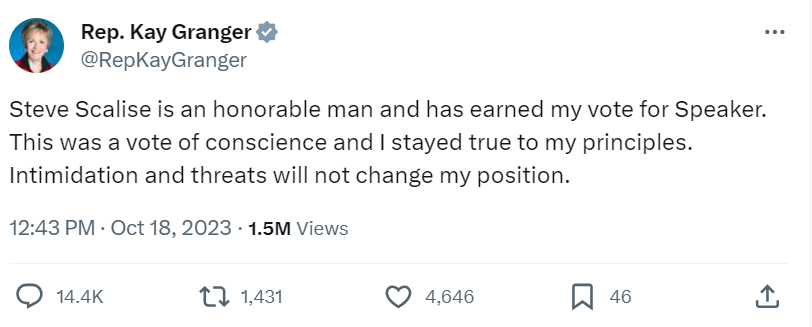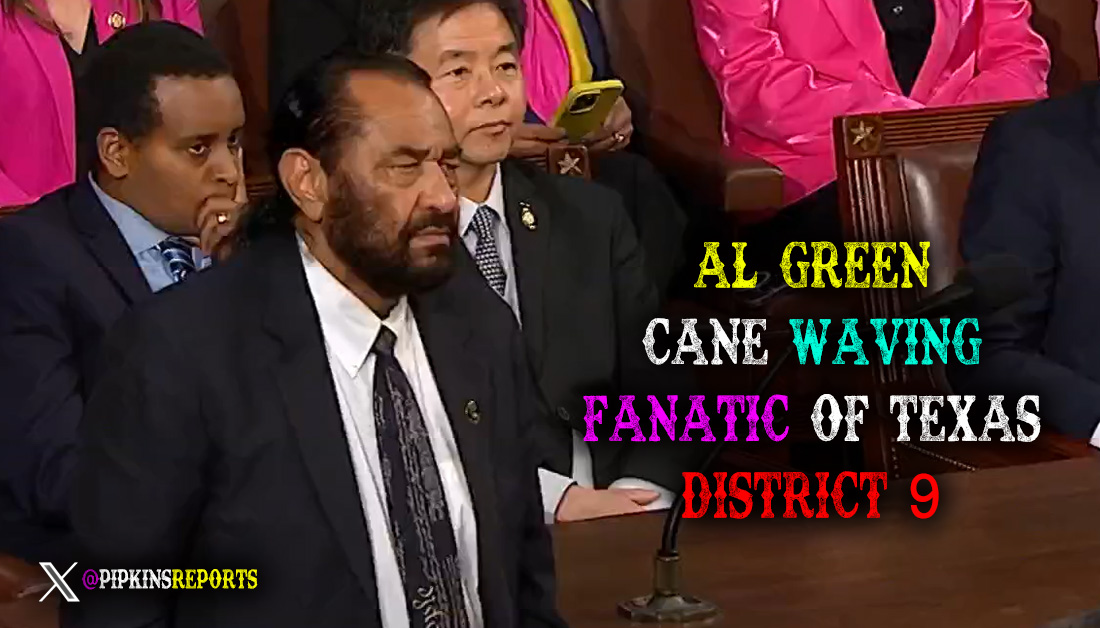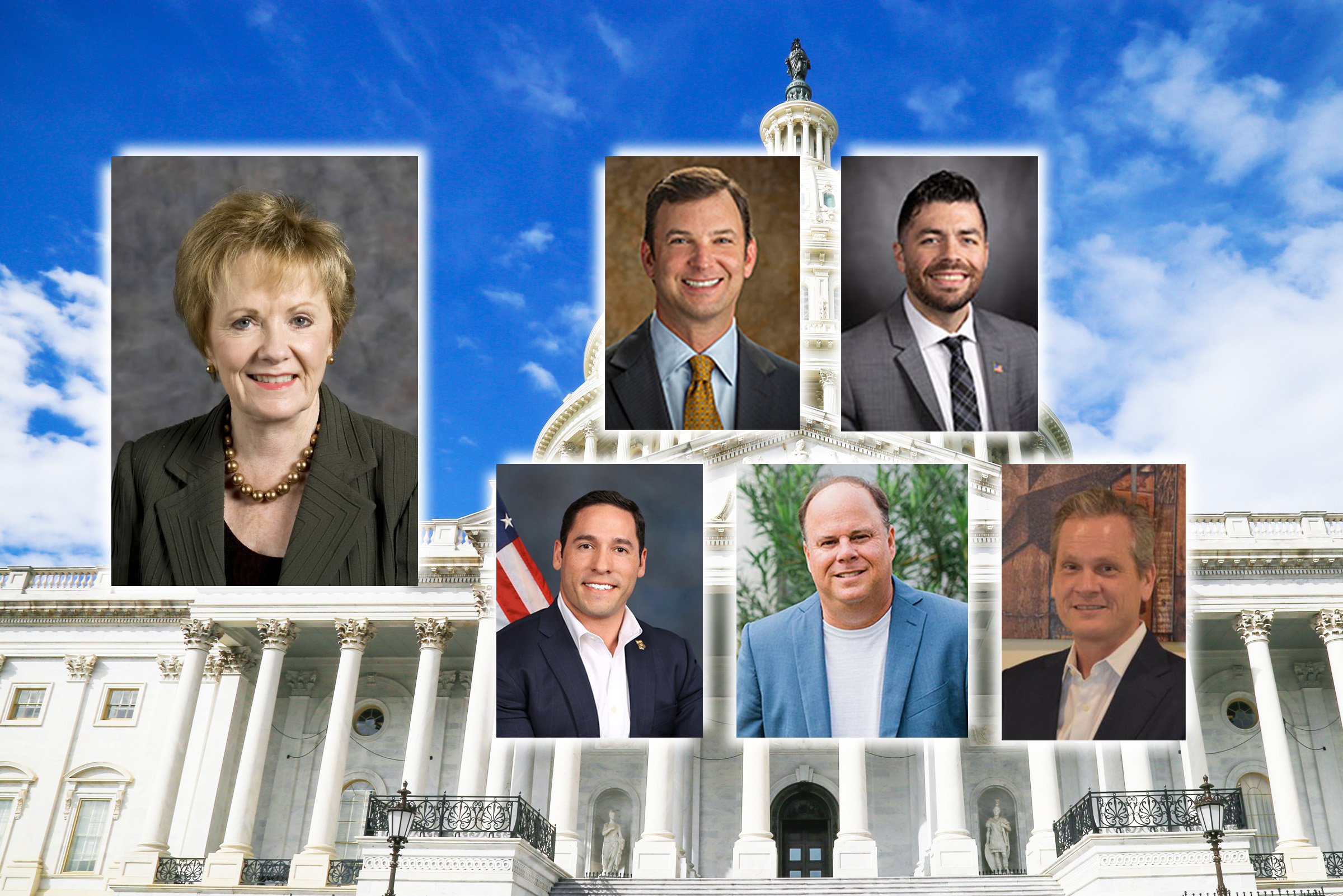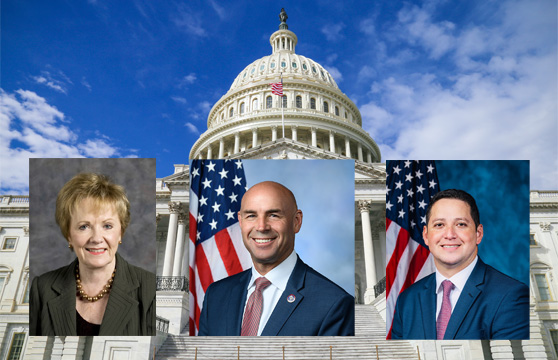National
Revealed: Kay Granger’s Defense Donors – The Jim Jordan Connection!

Fort Worth, TX – The Texas Liberty Journal
Kay Granger, a prominent figure in Texas politics, has found herself at the center of a political storm due to her recent vote for House Majority Leader Steve Scalise as Speaker of the House, rather than Tea Party supporter Jim Jordan. Granger, who represents Texas’ 12th Congressional District, is the Chair of the influential House Appropriations Committee. Her claim that her vote was an act of conscience, demonstrating her unwavering commitment to an “honorable man,” has raised eyebrows. But is there more to this story than meets the eye?
Born on January 18, 1943, Kay Granger will be 81 years old upon potential reelection in 2024, a fact that has raised questions about her long-standing political career and her capacity to adapt to the changing political landscape. Granger’s impressive political journey includes roles such as:
- 1965: Graduated from Texas Wesleyan University with a B.S.
- 1981-1989: Zoning Commission, Fort Worth, Texas
- 1989-1991: City Council, Fort Worth, Texas
- 1991-1995: Mayor of Fort Worth, Texas
- 1997-Present: U.S. Representative from Texas’ 12th Congressional District
Granger’s entry into the world of national politics occurred in 1996 when Congressman Pete Geren announced his retirement. Both the Democratic and Republican parties actively courted Granger to run for his seat. At the time, Republicans were optimistic about their chances in Texas’s 12th congressional district, which had once been represented by Democratic Speaker of the House Jim Wright. However, legislative redistricting after the 1990 census had added areas with more Republican residents, changing the district’s political landscape.

Granger ran as a Republican candidate and secured victory with 56% of the vote against Democratic nominee Hugh Parmer, another former Fort Worth mayor. She went on to win reelection in 1998 and faced significant opposition only in 2000. In 2008, Granger defeated Democratic nominee Tracey Smith with a resounding 67% of the vote.
Throughout her political career, Granger has held influential positions, published a book titled What’s Right About America, Celebrating Our Nation’s Values in 2006, and been reelected to her sixth term in Congress. She also achieved the position of Conference Vice Chair, the fourth-ranking position among House Republicans. Granger’s notable roles have included chairing the House Appropriations Subcommittee on State-Foreign Operations, serving on the United States House Committee on Appropriations’s Subcommittee on Defense (as the first woman to do so), and the Labor, Health, Human Services, and Education Subcommittee. Additionally, she has served as a House Deputy Whip.
In the realm of national politics, Granger endorsed former Massachusetts governor Mitt Romney in the Republican presidential primary, showcasing her support for candidates who align with her political ideology.
Now, let’s revisit the recent controversy. Granger’s vote for Speaker of the House raised questions about whether her loyalty to donors in the military-industrial complex influenced her decision more than her “conscience.” Her top donors, eight out of the 15, are major players in the defense and aerospace industry, including L3Harris Technologies, Leidos Inc, Elbit Systems, Lockheed Martin, GE Aerospace, Textron Inc., Huntington Ingalls Industries, and Anduril Industries. These companies are no small players:
L3Harris Technologies:
With $17 billion in annual revenue, L3Harris Technologies is a significant player in the defense industry, positioning themselves as a “Trusted Disruptor in defense.”
Leidos Inc:
Based in Reston, Virginia, Leidos Inc specializes in defense, aviation, information technology, and biomedical research, contributing to various aspects of national defense.
Elbit Systems of America, LLC:
A wholly-owned subsidiary of Elbit Systems Ltd., they provide technology-based systems for diverse defense and commercial applications.
General Electric Aerospace:
GE Aerospace is a world-leading provider of jet engines, components, and integrated systems for both commercial and military aircraft.
Huntington Ingalls Industries:
HII is a global, all-domain defense provider, specializing in powerful ships and technologies that safeguard various domains.
Textron Inc:
A well-known multi-industry company, Textron Inc leverages its global network of aircraft, defense, industrial, and finance businesses to provide innovative products and services.
Anduril Industries:
This California-based defense contractor, founded by Oculus VR founder Palmer Luckey and Founders Fund partner Trae Stephens, focuses on identifying problems and rapidly delivering solutions.
This controversy underscores the ongoing debate about the role of campaign contributions and the influence of interest groups in shaping the decisions of elected officials. As Granger’s age and extensive political history come under scrutiny in the lead-up to the 2024 elections, citizens of Texas’ 12th Congressional District and political observers across the nation will undoubtedly be watching closely to see how these factors will impact Granger’s future in American politics.
On the other hand …
Jim Jordan, the Ohio Republican Representative and Tea Party supporter, has been a vocal advocate for military spending cuts, leaving no stone unturned as he boldly states that “everything” is on the table, including what he terms as ‘woke’ policies. As the chairman of the House Select Subcommittee on the Weaponization of the Federal Government, Jordan has announced a significant probe into nearly a dozen unauthorized record disclosures made by the U.S. Air Force. As a founding member of the hardline conservative Freedom Caucus, Jordan’s approach to military assistance and foreign policy is notably different from Granger’s. He has consistently voted against various bills offering assistance to Ukraine since the Russian invasion began in February 2022. However, he did support an early 2022 proposal to send certain equipment to Kyiv as part of a lend-lease deal. Jordan’s positions and actions present a contrasting perspective on critical matters related to defense and foreign policy.
On the other side of the political spectrum, Steve Scalise’s association with certain donors sheds light on his financial ties. His “F” rated Liberty Score from Conservative Review suggests a misalignment with the conservative base. Scalise’s top donors, including The GEO Group, Inc., which invests in private prisons and mental health facilities, healthcare companies like Ochsner Health System, law firms, banking companies, large construction companies, and energy giants such as Valero Energy, highlight the diversity of interests contributing to his campaign funds. These associations offer a glimpse into the financial influences that may have played a role in his political decisions and priorities.
Featured
Al Green’s Disgraceful Outburst: A Constitutionalist’s Take on Democrats’ Descent into Chaos

HOUSTON, TX — On Tuesday, March 4, 2025, the hallowed halls of Congress bore witness to a spectacle that would make the Founding Fathers recoil in disgust. Representative Al Green (D-TX), the long-serving voice of Texas’ 9th District south of Houston, turned President Donald Trump’s joint address into a personal soapbox, erupting in a tantrum that ended with his forcible removal from the chamber. Two days later, on Thursday, March 6, the House delivered a rare and deserved censure, with a 224-198 vote that saw ten Democrats break ranks to join Republicans in condemning Green’s antics. What followed was a screaming match on the House floor—a fitting capstone to the Democrats’ descent into petulant disorder.
Green’s outburst was no spontaneous act of passion. It was a calculated middle finger to decorum, tradition, and the very principles that undergird our constitutional republic. As President Trump spoke of his electoral mandate—a mandate secured by the American people in November 2024—Green leapt to his feet, brandishing his cane like a prop in some low-budget melodrama. “You have no mandate!” he bellowed, his voice cutting through the chamber as he railed against Trump’s supposed plans to “cut Medicaid.” House Speaker Mike Johnson (R-LA), a man tasked with maintaining order in an increasingly fractious body, issued stern warnings. Green ignored them. The Sergeant at Arms was summoned, and the 77-year-old congressman was escorted out to a chorus of Republican cheers—and, tellingly, Democratic silence.
This wasn’t Green’s first rodeo. The veteran lawmaker, who’s clung to his seat since 2005, has a history of grandstanding that stretches back to his early pushes to impeach Trump in 2017. A self-styled “civil rights advocate,” Green’s resume boasts arrests for protests outside embassies and a decade-long stint leading Houston’s NAACP chapter. But Tuesday’s stunt wasn’t noble dissent—it was a cheap shot at a president addressing a joint session, a moment meant to reflect the unity of our governing institutions. Instead, Green gave us a glimpse of the Democrats’ true face in 2025: unhinged, undisciplined, and utterly incapable of rising above their partisan bile.
The House’s censure vote on Thursday was a necessary rebuke, though it barely scratches the surface of what’s wrong with Green and his ilk. The resolution, spearheaded by Rep. Dan Newhouse (R-WA), passed with bipartisan support—a rarity in these polarized times. Two members voted “present,” one of them Green himself, who couldn’t even muster the dignity to stand by his own disruption. Speaker Johnson read the censure aloud as Green, surrounded by fellow Democrats, launched into a rendition of “We Shall Overcome”—a civil rights anthem cheapened by its use as a prop in this circus. What followed was pure chaos: a screaming match between Democrats and Republicans that turned the House floor into a scene more befitting a barroom brawl than the people’s chamber.
Let’s not mince words: Green’s behavior, and the Democrats’ tacit endorsement of it, is an affront to the Constitution itself. Article I vests Congress with the power to govern, not to grandstand. The House isn’t a stage for personal vendettas or theatrical protests—it’s a place where representatives are duty-bound to uphold order and reason, even in disagreement. Green’s refusal to heed Johnson’s calls to sit down wasn’t just a breach of decorum; it was a rejection of the very framework that keeps our republic from sliding into mob rule. And the Democrats’ response—singing hymns while the chamber dissolved into anarchy—only underscores their contempt for that framework.
The broader context makes this episode even more galling. Trump’s address came five months after a decisive electoral victory, one that handed Republicans the House, the Senate, and the popular vote—a trifecta not seen in decades. Democrats, still licking their wounds, had been urged by their leadership to show restraint during the speech. Green ignored that directive, as did others who walked out or heckled in quieter tones. Reps. Maxwell Frost (FL), Jasmine Crockett (TX), and a handful of others staged their own mini-rebellions, but Green’s was the loudest—and the most shameful. This wasn’t resistance; it was a tantrum from a party that’s lost its moorings.
Conservatives, of course, aren’t surprised. Green’s track record—impeachment crusades, cane-waving histrionics—reads like a playbook for the modern Left: when you can’t win at the ballot box, disrupt the process. But what’s truly abhorrent is how this behavior erodes the trust Americans place in their institutions. The House isn’t a sandbox for overgrown children; it’s a bulwark of liberty, a place where the people’s will is meant to be hashed out with grit and grace. Green and his Democratic cheerleaders forgot that—or, worse, they don’t care.
The censure itself is a slap on the wrist—a symbolic condemnation with no real teeth. But it’s a start. Ten Democrats crossing the aisle to support it signals that even some in their ranks are fed up with the clown show. For constitutionalists, though, the stakes are higher than party lines. We’re watching a slow-motion assault on the norms that keep our government functional. If Green’s outburst goes down as just another blip in the news cycle, we’re one step closer to a Congress where shouting matches replace debate, and the rule of law bows to the rule of the loudest.
Texas’ 9th District deserves better than Al Green. So does the nation. On March 4, he didn’t just embarrass himself—he embarrassed the republic. And on March 6, when the House rightly censured him, the Democrats’ screaming response proved they’re more interested in theater than governance. The Constitution demands more. We should, too.
Featured
The Deep State’s Dirty Laundry: How the U.S. Government Became the World’s Most Corrupt Machine—and Why Trump Terrifies Them

For decades, the United States has cloaked itself in the sanctimonious garb of “defender of democracy,” wagging its finger at tin-pot dictators and third-world kleptocrats while its own intelligence apparatus—the CIA, NSA, and their shadowy cousins—ran roughshod over sovereign nations like a geopolitical wrecking crew. The evidence isn’t buried in conspiracy forums; it’s strewn across the historical record, plain as day. In 1953, the CIA orchestrated the overthrow of Iran’s democratically elected Prime Minister Mohammad Mossadegh, installing the Shah to secure oil interests for Western elites. A year later, they toppled Guatemala’s Jacobo Árbenz over fears his land reforms threatened United Fruit Company’s profits—capitalism’s sacred cow. Fast forward to 2011: the NSA’s mass surveillance fingerprints were all over the Arab Spring, destabilizing regimes under the guise of “spreading freedom,” while CIA black sites waterboarded their way through the War on Terror. From Chile to Ukraine, the playbook’s the same—subvert, manipulate, install. Rinse, repeat.
This isn’t noble statecraft; it’s a global power grab dressed up as patriotism. And here’s the rub: what starts as foreign meddling doesn’t stay foreign. Power, as Lord Acton warned, corrupts—and absolute power? That’s the Deep State’s calling card. Somewhere along the line, the unelected bureaucrats in Langley and Fort Meade stopped seeing themselves as servants of the Constitution and started acting like its overlords. Elected leaders, meanwhile, caught the scent of the grift. Why settle for a congressional salary when you can funnel billions in taxpayer dollars to murky NGOs—nonprofits with no oversight, staffed by cronies, and flush with cash for “consulting” gigs? Just look at the Biden family’s Ukraine adventures or the Clintons’ foundation empire—public office became a ATM, and the PIN was plausible deniability.
Enter Donald J. Trump, the brash billionaire who crashed the party in 2016. To the Deep State and their political puppets, he wasn’t just an outsider—he was a five-alarm fire. Trump didn’t play by their rules. He didn’t genuflect to the intelligence community’s sacred cows or rubber-stamp the endless wars that keep the machine humming. Worse, he started asking questions—about NATO’s bloated budgets, about foreign aid slush funds, about why the U.S. was bankrolling half the planet while its own borders crumbled. For a system built on secrecy, self-enrichment, and global dominance, this was existential kryptonite.
The Deep State’s response was predictable: neutralize the threat. Politicians saw Trump as a buzzsaw to their money-laundering rackets—those sweet, untraceable streams of cash flowing through “humanitarian” NGOs and defense contracts. The intelligence brass saw him as a wrecking ball to their unaccountable fiefdoms, where they—not the President—call the shots. Exhibit A: the Russia collusion hoax. The CIA and FBI didn’t just spy on Trump’s campaign; they fabricated a narrative with forged dossiers and leaked it to a compliant press. Exhibit B: the 2020 election, where Big Tech—cozy as ever with NSA data pipelines—suppressed the Hunter Biden laptop story, a move that polling later showed could’ve swung the outcome. Exhibit C: January 6, where murky federal informants and a militarized Capitol response turned a protest into a cudgel to smear Trump and his supporters as domestic terrorists.
The media, of course, is the Deep State’s megaphone. CNN, MSNBC, and the New York Times didn’t just cheerlead the takedown; they were active players, laundering lies from anonymous “senior officials” into front-page gospel. When Trump railed against “fake news,” he wasn’t wrong—he was just late to the party. The press has been in bed with spooks since Operation Mockingbird, when the CIA infiltrated newsrooms to shape narratives. Today, it’s less infiltration than symbiosis: anchors and editors know their bread’s buttered by the same hands that pull the levers in D.C.
From a constitutional conservative lens, this is a betrayal of everything America’s supposed to stand for. The Founders didn’t bleed at Valley Forge so a cabal of unelected suits could run the show. They gave us checks and balances, not shadow governments. Trump, for all his bombast, threatens to drag that original vision back into the light—less global empire, more national sovereignty; less insider grift, more accountability. That’s why the Deep State and their political lapdogs want him gone. He’s not perfect, but he’s a middle finger to a system that’s spent decades picking our pockets and subverting our will.
Texas knows this fight better than most. We’ve seen D.C.’s overreach firsthand—whether it’s federal land grabs or ATF gun grabs. The Lone Star State’s a microcosm of what’s at stake: a people who’d rather govern themselves than bow to a corrupt leviathan 1,500 miles away. Trump’s their nightmare because he’s ours—a bull in the china shop of a government that’s forgotten who it answers to. The Deep State can’t stand that. And they’ll burn it all down before they let him win again.
The rot of the Deep State doesn’t just fester in the marble corridors of Washington—it’s seeped into the red dirt of Texas, where the battle lines between constitutional liberty and centralized corruption are drawn sharper than a Bowie knife. The Lone Star State, a bastion of self-reliance and skepticism toward federal overreach, has become a proving ground for the clash between Donald Trump’s outsider insurgency and a system desperate to cling to power. Here, the stakes aren’t theoretical—they’re as real as the oil rigs dotting the Permian Basin. And the Deep State, alongside its Democratic allies in Congress, is pulling every lever to stop Trump from dismantling their racket.
Back in D.C., the CIA and NSA’s history of global manipulation—toppling Mossadegh in Iran, Árbenz in Guatemala, and greasing the skids for chaos in the Middle East—set the stage for a domestic power grab that’s now in full bloom. Power corrupts, and the federal trough has turned elected officials into pigs with snouts buried deep. Take the Biden family’s Burisma dealings or the Clinton Foundation’s pay-to-play schemes—public funds siphoned through NGOs with less oversight than a West Texas honky-tonk on a Saturday night. The Deep State, convinced it’s the real government, doesn’t just tolerate this; it thrives on it. Trump’s pledge to drain the swamp threatens not just the politicians’ slush funds but the intelligence community’s untouchable dominance. That’s why they’ve weaponized the media—from CNN’s breathless Russia hoaxes to the New York Times’ stenography for anonymous спooks—to take him down.
Nowhere is this fight fiercer than in Texas, where the state’s 38 congressional seats make it a linchpin in the battle for the House. Top Democrats, sensing Trump’s momentum after his 2024 victory, are scrambling to erect roadblocks, and their Lone Star delegation is leading the charge. Here’s how they’re doing it:
- Rep. Al Green’s Impeachment Gambit: On February 5, 2025, Houston’s Rep. Al Green—a Democrat with a flair for the dramatic—filed articles of impeachment against Trump over a supposed plan to “take over Gaza.” Green called it “ethnic cleansing,” a charge as wild as a Longhorn stampede, given Trump’s actual focus on domestic priorities like border security. Reported by The Guardian, this move reeks of political theater, a stunt to tie Trump up in legal knots and rally the progressive base. Green’s history of failed impeachment bids against Trump—three during his first term—shows he’s less interested in winning than in gumming up the works.
- Rep. Lloyd Doggett’s Funding Freeze Fiasco: Austin’s Rep. Lloyd Doggett, a grizzled veteran of the House, has been pushing to freeze federal funding to Texas agencies that might align with Trump’s agenda. In late February, Doggett joined a coalition of House Democrats to block Department of Defense grants, citing Trump’s “militarization” of the border—an echo of 2019, when he and others filibustered Pentagon funds over the border wall, as noted by AP News. This isn’t about principle; it’s about starving Texas of resources to enforce immigration laws Trump champions, laws that resonate with voters from El Paso to Tyler.
- Rep. Joaquin Castro’s Media Blitz: San Antonio’s Rep. Joaquin Castro has taken to the airwaves, partnering with MSNBC and local outlets like the San Antonio Express-News to amplify claims of Trump’s “authoritarian” bent. In a February 14, 2025, NPR report, Castro backed a new House Democratic “rapid response task force” to counter Trump’s executive orders, framing them as an assault on democracy. His real game? Keeping the narrative alive that Trump’s a threat to Texas values, even as San Antonians chafe at federal overreach on everything from gun rights to energy policy.
These Texas Democrats aren’t lone wolves—they’re pack animals, coordinating with national figures like Senate Minority Leader Chuck Schumer and House Minority Leader Hakeem Jeffries. Schumer’s been vocal, telling The Guardian on February 9 that Democrats will “do everything in their power” to block Trump’s agenda, while Jeffries has leaned on the House’s slim GOP majority—now 217-215 after resignations—to stall Trump-backed bills. Add in lawsuits from the Democratic National Committee, filed in late February against Trump’s executive orders on election integrity (Politico), and you’ve got a full-court press to cripple his administration before it can hit stride.
For Texas, this isn’t just politics—it’s personal. The state’s economy, from oil to agriculture, thrives when Washington stays out of the way. Trump’s promise to slash regulations and secure the border aligns with that ethos, which is why he carried Texas by over 5 points in 2024. But the Deep State and its Democratic proxies see that as a threat to their globalist gravy train. They’d rather see Texas kneel than prosper—whether it’s Doggett choking off funds, Green grandstanding, or Castro playing media marionette.
The irony? Texas has seen this before. In 2021, state Democrats fled to D.C. to block a voting bill, only to watch it pass anyway (Al Jazeera). Now, their congressional kin are trying the same playbook against Trump, betting they can outlast him with procedural tricks and press conferences. But Texans don’t bend easy. From the Alamo to the present, we’ve fought bigger bullies than this—and won. Trump’s their champion because he’s ours: loud, unpolished, and unwilling to let a corrupt machine dictate terms. The Deep State can scheme all it wants, but in Texas, we still believe the people—not the spooks or the suits—call the shots.
Featured
From Trump Derangement to Musk Derangement: The Left’s New Obsession

When former President Donald Trump established the Department of Government Efficiency (DOGE), it was met with predictable hostility from the entrenched bureaucracy and their media allies. But with Elon Musk now leading the charge at DOGE, the Left’s irrational hatred has reached an entirely new level—Musk Derangement Syndrome (MDS) is in full swing.
Musk’s mission has been simple: investigate waste, fraud, and abuse across every department in the federal government. Starting with the U.S. Agency for International Development (USAID), his findings have sent shockwaves through Washington, exposing billions of taxpayer dollars funneled into dubious and outright absurd programs. The revelations have left Democrats and radical leftists scrambling to discredit the effort, accusing Musk of political bias and “authoritarianism.” But the numbers don’t lie.
USAID’s Unbelievable Spending Spree
The investigations into USAID, an agency that has long been criticized for operating as an unaccountable slush fund for globalist pet projects, have uncovered breathtaking levels of waste and corruption. Here are just a few examples:
- $1.5 million to “advance diversity, equity, and inclusion in Serbia’s workplaces and business communities.”
- $70,000 for production of a “DEI musical” in Ireland.
- $2.5 million for electric vehicles for Vietnam.
- $47,000 for a “transgender opera” in Colombia.
- $32,000 for a “transgender comic book” in Peru.
- $2 million for sex changes and “LGBT activism” in Guatemala.
- $6 million to fund tourism in Egypt.
- Hundreds of thousands of dollars for a non-profit linked to designated terrorist organizations—even AFTER an inspector general launched an investigation.
- Millions to EcoHealth Alliance, the same organization tied to the Wuhan lab’s dangerous research.
- Hundreds of thousands of meals that ended up in the hands of al Qaeda-affiliated fighters in Syria.
- Funding for personalized contraceptives in developing countries, raising serious ethical and legal concerns.
- Hundreds of millions funneled into “irrigation canals, farming equipment, and even fertilizer” that directly supported heroin production in Afghanistan, benefiting none other than the Taliban.
These are not minor accounting errors. These are deliberate, ideological funding choices that siphon American taxpayer dollars away from legitimate needs and into radical activism abroad. The Musk-led DOGE investigation has exposed what conservatives have long suspected: USAID is more concerned with leftist social engineering than it is with legitimate foreign aid.
The Left’s Meltdown Over Musk
Musk has never been a traditional conservative, but his embrace of free speech, transparency, and accountability has made him the prime target of the Left’s rage. They once lauded him as a genius entrepreneur when he was building Tesla and SpaceX, but the moment he began challenging their narratives—whether on government waste, censorship, or corporate ESG mandates—he became public enemy number one.
The Democrat-controlled Senate is already demanding hearings into Musk’s leadership of DOGE, accusing him of waging a “war on government” and “undermining democracy.” Progressive activists are calling for his resignation, and leftist media outlets are running hit pieces at an unprecedented pace. The same voices that screamed about Trump’s so-called authoritarianism are now hyperventilating over Musk merely exposing how their tax-and-spend schemes actually operate.
A Battle for Government Transparency
What we’re witnessing isn’t just political theater—it’s a desperate attempt by the Left to maintain control over the bloated, unaccountable bureaucracies that sustain their globalist agenda. USAID is only the beginning. Musk and his team at DOGE have already hinted that their next targets include the Department of Education (where billions are funneled into woke indoctrination programs) and the National Science Foundation (which funds dubious “social justice” research projects).
The Left’s unhinged response to Musk’s work proves just how deeply entrenched the corruption runs. If exposing billions of wasted tax dollars is seen as an existential threat, what does that say about the priorities of those in power?
The fight against government waste isn’t about partisanship—it’s about accountability. And if the Democrats and radical leftists think they can shout down the truth, they may have underestimated both Musk and the American people. The battle has just begun.
-

 Election1 week ago
Election1 week agoAbbott’s Backroom Play: How Greg Abbott Used a Legal Loophole to Install Kelly Hancock as Texas Comptroller Without Senate Confirmation
-

 Featured5 days ago
Featured5 days agoAbbott’s Veto of SB3 Saves Texas Hemp Industry, Sparks Battle Over Regulation
-

 Election2 days ago
Election2 days agoTexans to Vote on 17 Constitutional Amendments, with Historic Homestead Exemption in Spotlight







You must be logged in to post a comment Login